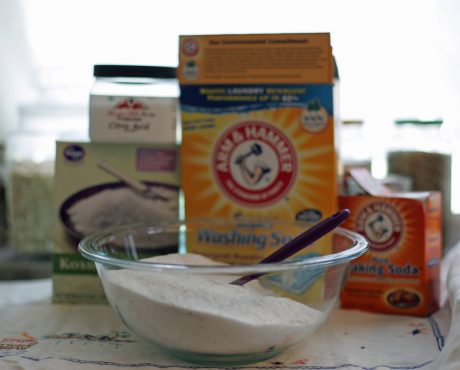Church & Dwight Co., Inc.’s Dividend Has Grown 685% in 10 Years
I hope our readers understand this basic tenet of my team’s investment philosophy: We seek out companies with long histories of paying dividends, not just for years or decades, but for generations.
These elite businesses, which I have nicknamed “Forever Assets,” all own durable brands and impenetrable economic moats. And that allows them to produce outsized returns (and dividends) for shareholders decade after decade.
For proof, you only need to need to take a quick glance at the top-performing names I’ve written about in my Passive Monthly Income advisory.
Stocks like Hershey Co (NYSE:HSY), Middlesex Water Company (NYSE:MSEX), and Clorox Co (NYSE:CLX) probably won’t impress your colleagues around the office water cooler. But shares of these businesses have crushed the broader market, making their investors a fortune.
Today I want to present another striking example: Church & Dwight Co., Inc. (NYSE:CHD).
Now stick with me here. I know most of you don’t want to read about a company that makes baking soda and kitty litter. But this quiet business has paid dividends to investors since 1901. And over the past decade, CHD shares have produced returns in the same ballpark as Amazon.com, Inc. (NASDAQ:AMZN) and Netflix Inc (NASDAQ:NFLX).
Yet this could be just the beginning.
Church & Dwight can trace its roots back to the 1840s. Company founders John Dwight and Dr. Austin Church started selling baking soda out of a garage in Massachusetts. About two decades later, the duo adopted the famous “Arm & Hammer” logo, which has since become a fixture in kitchens worldwide. (Source: “Our History,” Church & Dwight Co., Inc., last accessed August 11, 2020.)
Over the following decades, Church & Dwight discreetly expanded its consumer products empire. Today, the company owns dozens of top brands, including “Trojan” (condoms), “XTRA” (laundry detergent), “First Response” (pregnancy kits), “OxiClean” (laundry additive), “L’il Critters” (kids’ gummies), and “Spinbrush” (battery-powered toothbrushes). Altogether, this collection of cash cow businesses collectively produces $4.4 billion in annual revenues.
It’s not difficult to see why this business has stood the test of time.
Tech companies have to spend billions of dollars on research and development every year, running on a constant innovation treadmill. And if a business doesn’t reinvent itself on a regular basis, it’s quick to fall to the wayside (just ask shareholders of BlackBerry Ltd (NYSE:BB) or Nokia Oyj (NYSE:NOK).
Church & Dwight Co., Inc., in contrast, doesn’t share this burden. Most of the company’s products have remained almost unchanged for decades. And in the case of its core business, baking soda, management hasn’t changed the recipe in almost 200 years. This allows Church & Dwight to keep chugging along, paying out dividends decade after decade.
Producing such a track record has other benefits, too.
Retailers prefer to grant shelf space to established businesses rather than take a chance on unproven suppliers. And over a century of marketing distinguishes the company’s Arm & Hammer logo in grocery store aisles.
Sure, anyone can create a knockoff product. But even with a big marketing budget, it would take decades to replicate Church & Dwight’s relationships with customers. That allows the company to command a premium price on all of the products it sells.
For investors, this has translated into outstanding returns.
In 2019, the company’s gross margins topped 55%. Over the past decade, the business has generated $0.25 in profit on every dollar that shareholders have invested into the business. (Source: “Church & Dwight Co., Inc. (CHD),” Yahoo! Finance, last accessed August 11, 2020.)
Of course, the real test of any Forever Asset is how it fares during recessions.
Through the current pandemic, Church & Dwight has held up just fine. Over the first three months of 2020, the company has seen its sales and net income increase by 11.5% and 31.4% respectively. And while management withdrew their profit guidance for the rest of the year due to COVID-19 uncertainty, analysts project that the business will continue to post robust financial results. (Source: “Church & Dwight Reports Q1 Results,” Business Wire, April 30, 2020.)
So what does management do with all of the cash flow produced by the business? For the most part, they pay it out to shareholders.
In January, Church & Dwight executives bumped the quarterly dividend by 5.5% to $0.24 per share. That move represented Church & Dwight’s 24th consecutive distribution hike. (Source: “Dividend History,” Church & Dwight Co., Inc., last accessed August 11, 2020.)
And if the company can follow up with one more dividend increase in 2021, it will join the list of “Dividend Aristocrats,” an elite group of S&P 500 companies that have raised their dividends for at least 25 straight years.
(Source: Ibid.)
Church & Dwight executives also return boatloads of cash to investors through share buybacks.
In 2019, the company repurchased approximately 1.6 million of its own shares at an average price of $70.58. Over the last five years, management has spent almost $1.3 billion on their stock buyback program. (Source: “Church & Dwight Co., Inc. Annual Report 2019,” Church & Dwight Co., Inc., last accessed August 11, 2020.)
So what does this mean for investors? Think of a pizza divided into slices. By reducing the number of pieces, each individual slice becomes larger.
It works the same way for businesses. Since 2015, Church & Dwight has reduced its total number of outstanding shares by almost 10%. For the remaining investors, this increases their claim to future earnings and boosts the value of each individual share. That explains why CHD stock has handily outpaced the broader market.
While nothing is assured, Church & Dwight Co., Inc. should keep posting blowout returns through good times and bad.
That’s the power of owning Forever Assets.
